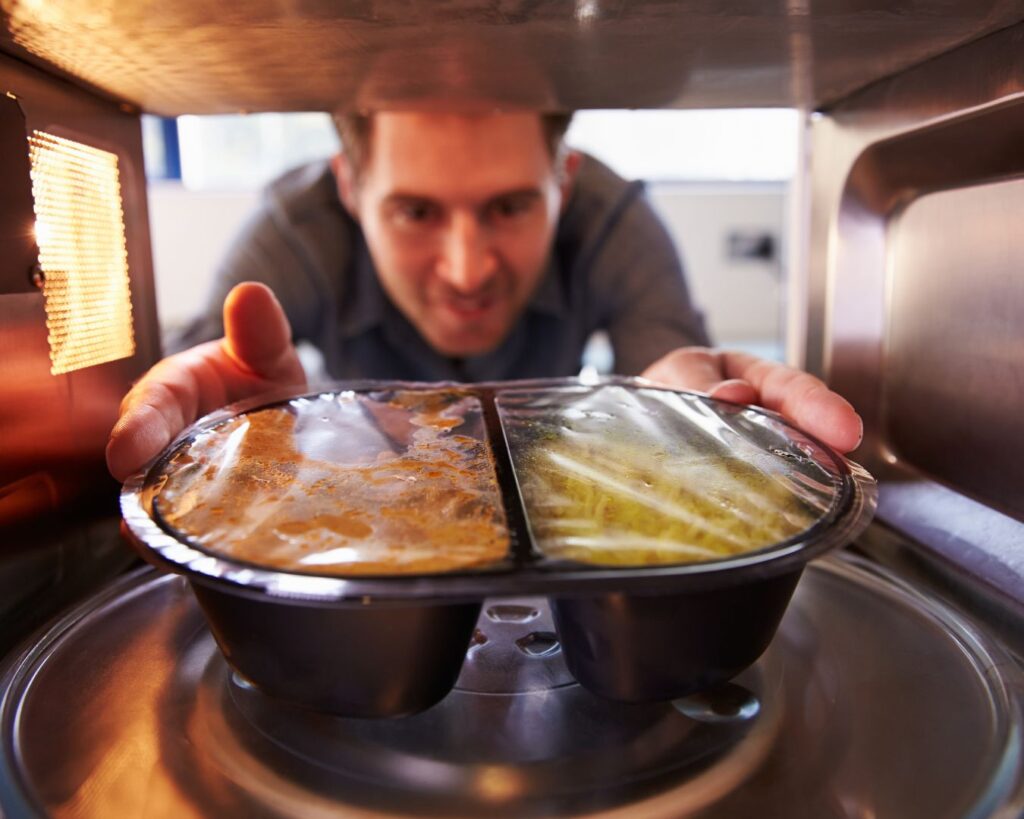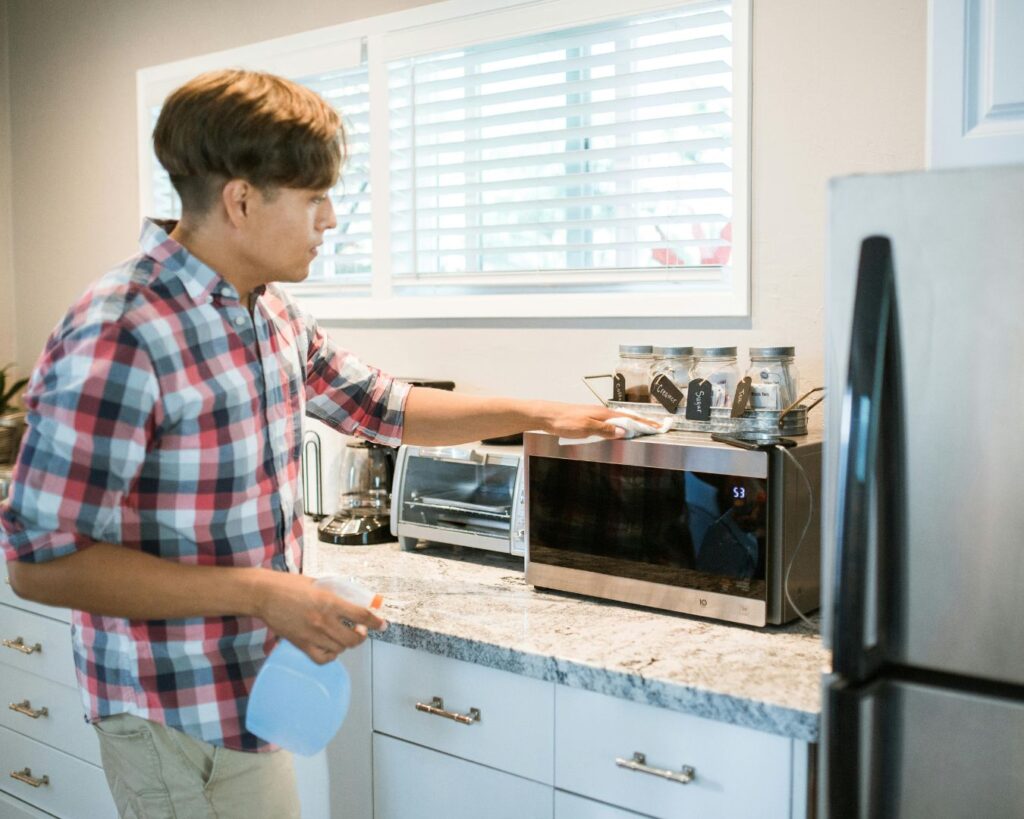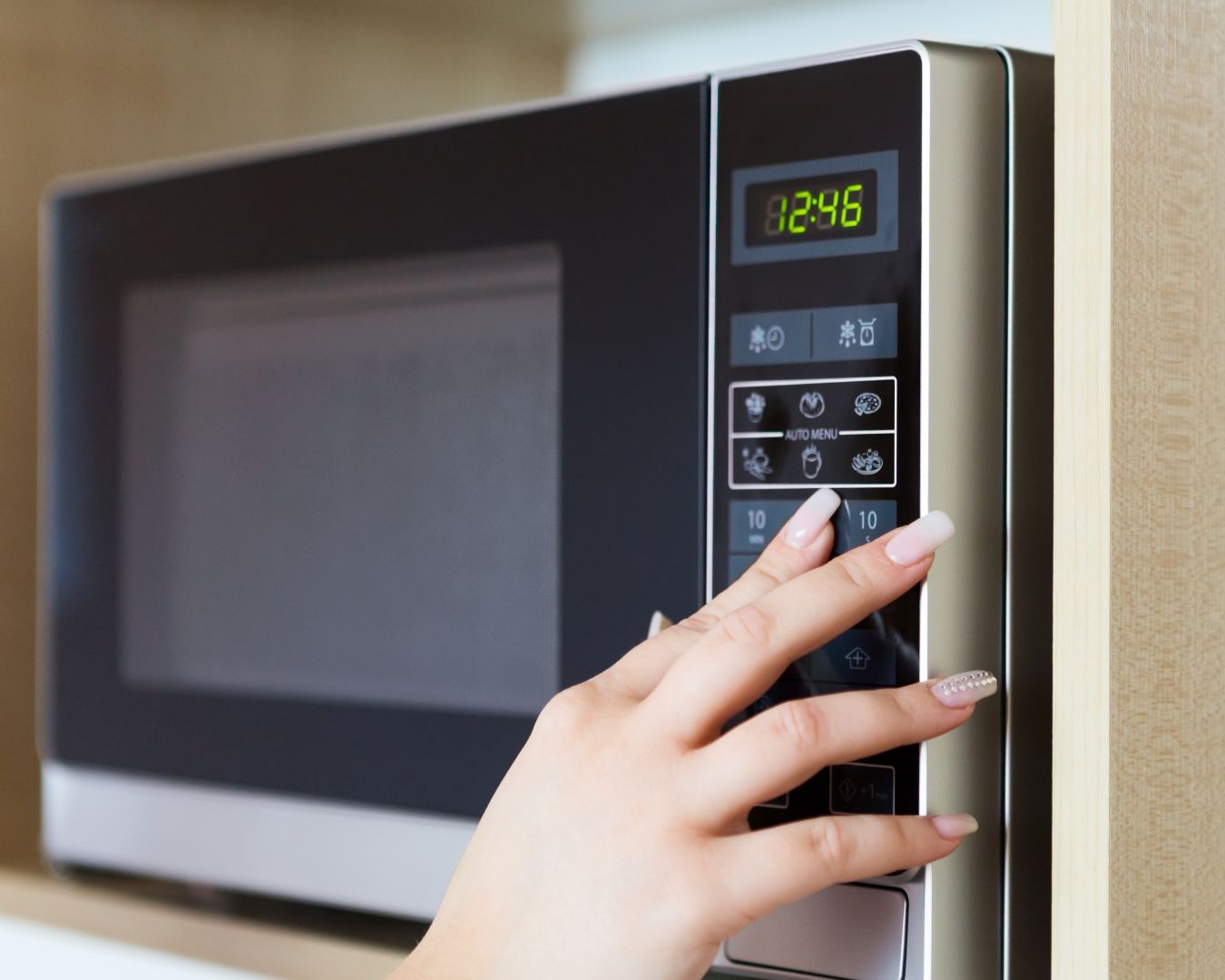Microwave Oven Safety: Preventing Radiation Leaks and Other Hazards
Microwave ovens are a convenient and efficient way to heat and cook food, but like any kitchen appliance, they require proper use and maintenance to ensure safety. Understanding how to use your microwave safely can prevent hazards, including radiation leaks and other common issues. Here’s a comprehensive guide to keeping your microwave oven safe and functioning optimally.
Understanding Microwave Radiation
1. How Microwaves Work
- Why: Microwaves use electromagnetic radiation to heat food by causing water molecules in the food to vibrate, generating heat.
- How: This process is contained within the microwave’s metal cavity, which prevents radiation from escaping.
2. Radiation Safety
- Why: Ensuring that microwave radiation is contained prevents exposure to potentially harmful levels.
- How: Microwaves are designed with safety features, including metal screens on the door and seals, to keep radiation inside.

Preventing Radiation Leaks
1. Regular Inspections
- Why: Over time, microwave ovens can develop issues that might cause radiation leaks.
- How: Regularly check for signs of damage such as cracks in the door or seals. Ensure that the door closes properly and that the seals are intact.
2. Proper Use
- Why: Using the microwave correctly helps maintain its safety features.
- How: Avoid operating the microwave with the door open or if it’s damaged. Never attempt to bypass or disable safety mechanisms.
3. Professional Maintenance
- Why: Professional inspections can identify and fix potential issues that might not be visible to users.
- How: Have your microwave inspected and serviced by a qualified technician if you notice any issues or if the appliance is malfunctioning.
Safe Operating Practices
1. Use Microwave-Safe Containers
- Why: Some materials can release harmful chemicals or melt when heated in a microwave.
- How: Use only containers labeled as microwave-safe. Avoid using plastic containers that are not specifically designed for microwave use, and steer clear of metal objects.
2. Avoid Superheating Liquids
- Why: Superheating can cause liquids to boil over suddenly and cause burns.
- How: Stir liquids before heating and use a microwave-safe cover with a vent to allow steam to escape. Place a wooden spoon or microwave-safe object in the container to prevent superheating.
3. Monitor Cooking
- Why: Ensuring food is cooked evenly helps prevent overheating and potential accidents.
- How: Stir food periodically during cooking and use the microwave’s turntable or rotate dishes manually to ensure even heating.

Handling Spills and Overflows
1. Clean Spills Promptly
- Why: Spills can cause odors and affect microwave performance.
- How: Wipe down spills immediately with a damp cloth. For stubborn stains, use a mild detergent and avoid abrasive cleaners that could damage the microwave’s interior.
2. Prevent Overflows
- Why: Overflows can create a mess and potentially damage the microwave.
- How: Use a microwave cover or place a microwave-safe plate under containers to catch any spills. Avoid overfilling containers and use appropriate cooking times.
Dealing with Microwave Odors
1. Remove Odors
- Why: Food odors can linger and affect the taste of other foods.
- How: Place a bowl of water with lemon juice or baking soda inside the microwave and heat it for a few minutes. The steam will help neutralize odors.
2. Regular Cleaning
- Why: Regular cleaning prevents buildup of food particles and odors.
- How: Clean the microwave’s interior and exterior regularly. Ensure the microwave is unplugged before cleaning.
Safety Precautions
1. Supervision
- Why: Children and inexperienced users might not understand how to use the microwave safely.
- How: Supervise young children when using the microwave and provide clear instructions on its safe operation.
2. Handle with Care
- Why: Microwaves can become hot during use and cause burns.
- How: Use oven mitts or potholders when removing hot containers and avoid direct contact with hot surfaces.
Microwave ovens offer convenience and efficiency in the kitchen, but ensuring their safe use is crucial for preventing radiation leaks and other hazards. By following proper operating practices, performing regular maintenance, and using the microwave correctly, you can enjoy its benefits while keeping your kitchen safe. Remember, a well-maintained and properly used microwave is a safe and reliable tool in your culinary arsenal.

